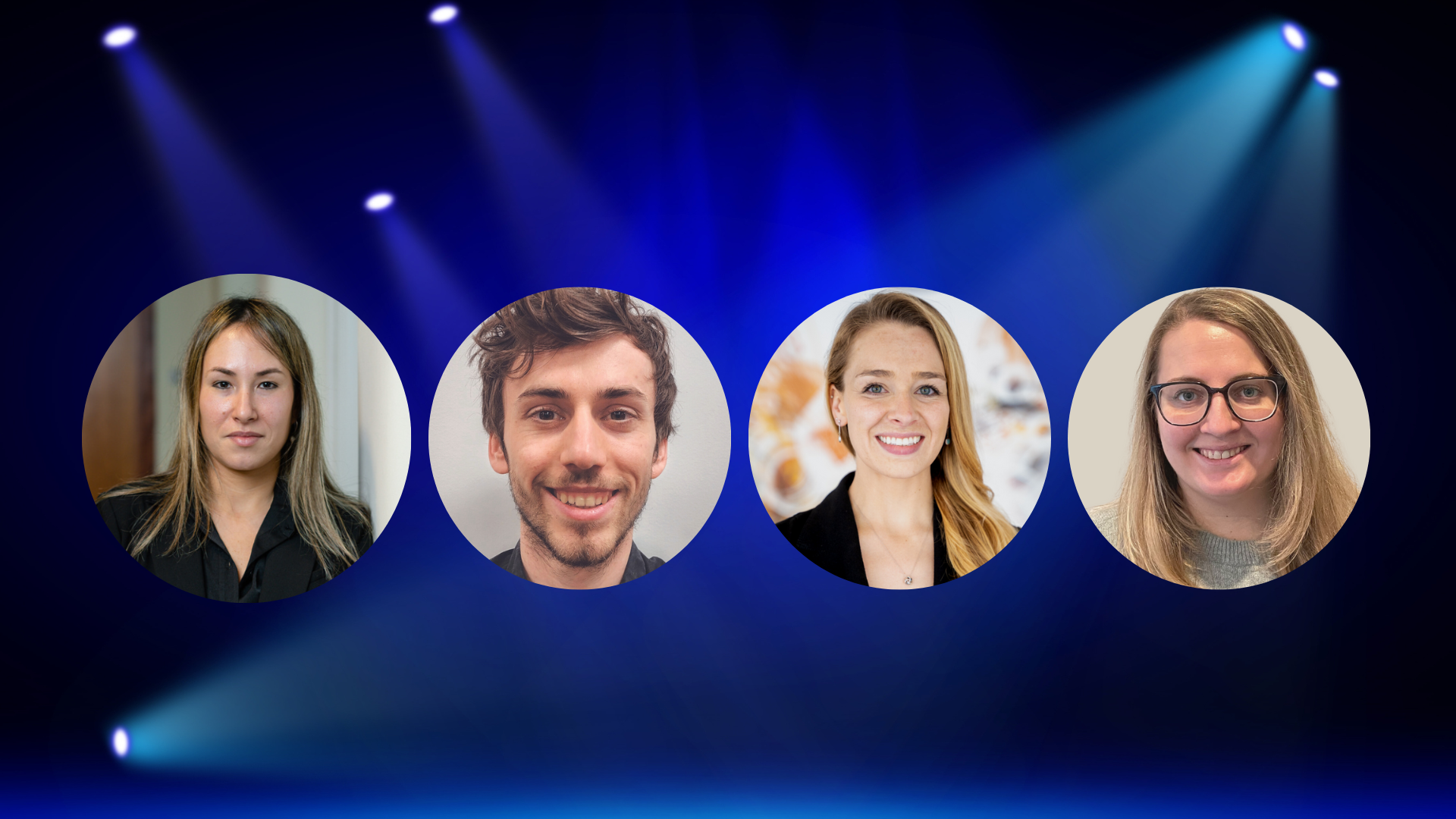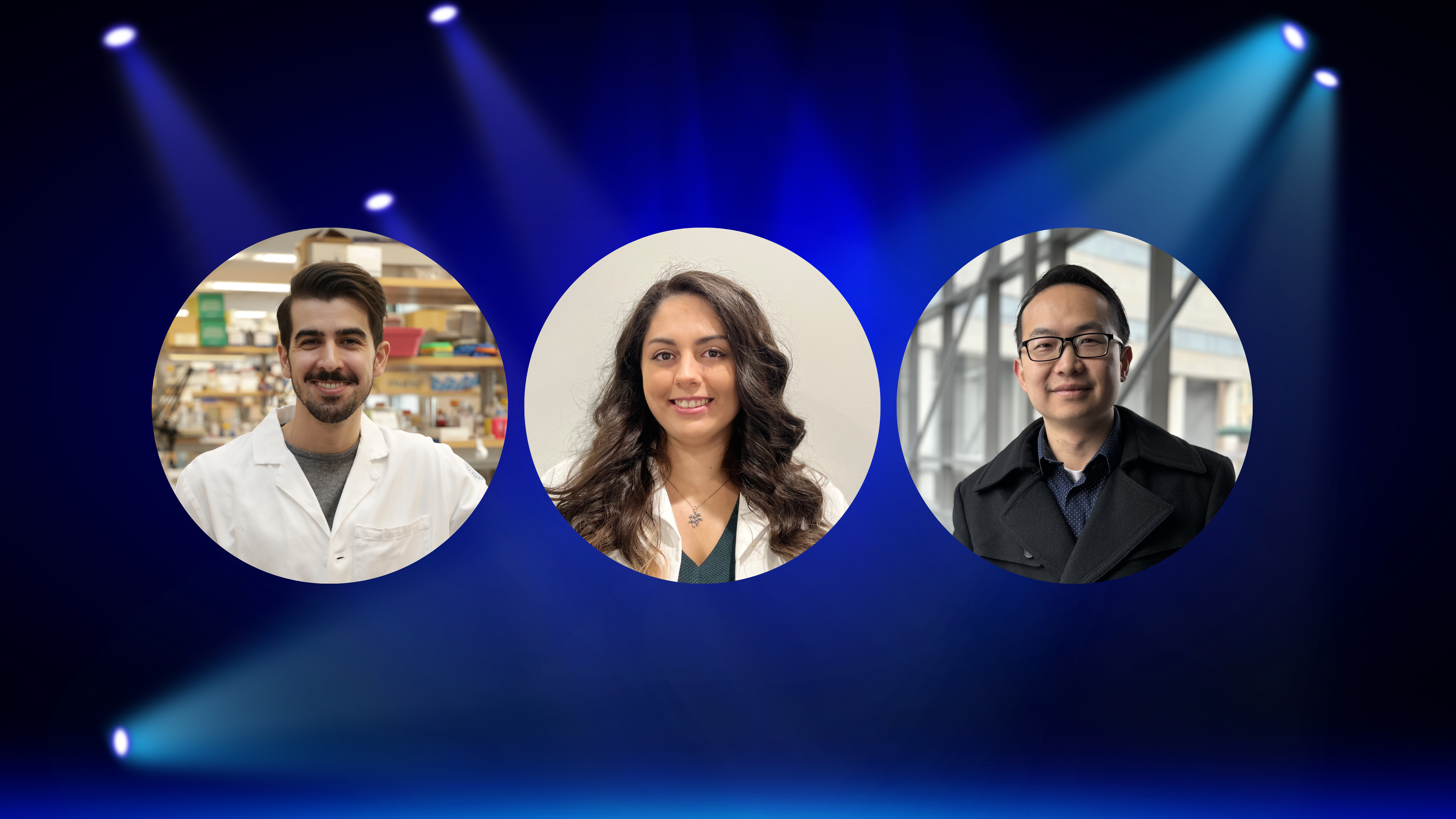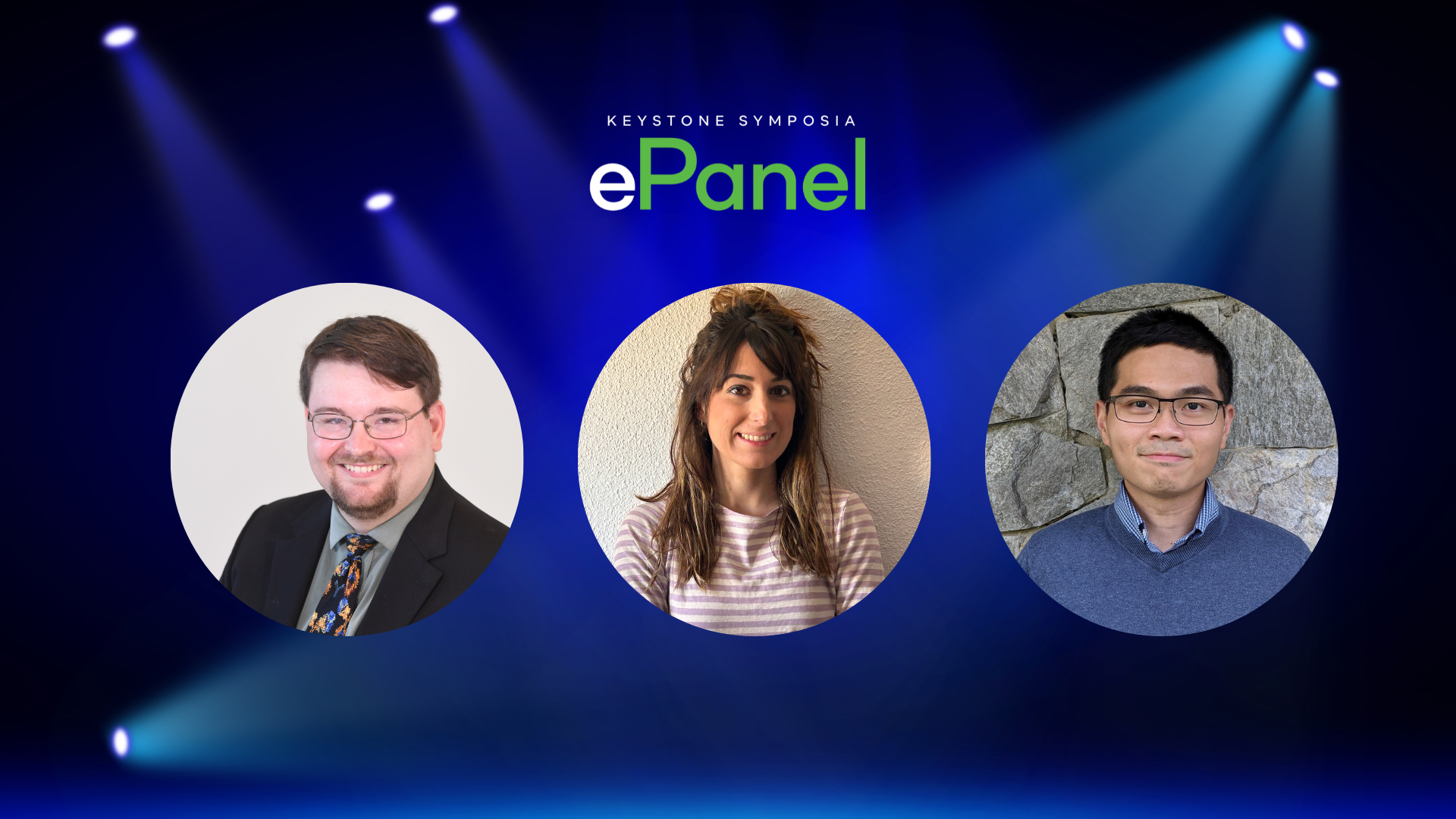Michelson Prizes: Next-Generation Grants ePanel on Human Immunology, Cancer Vaccines & Immunotherapy Advances
On April 29, 2025, Keystone Symposia hosted a live ePanel event featuring the recipients of the Michelson Prizes: Next-Generation Grants. These grants are designed to support young investigators at a time in their careers when funding can be difficult to secure, particularly for innovative projects that may be risky but have the greatest potential to yield scientific and medical breakthroughs. The international prize awards $150,000 in funding to early-career researchers who are applying disruptive concepts and inventive processes to advance human immunology, vaccine discovery, and immunotherapy research. The prize has been awarded annually since 2018, as a collaboration between the Michelson Medical Research Foundation and the Human Immunome Project.
This ePanel event showcased the 2024 award recipients, Drs. Caleb Lareau, Yzhong Liu and Omar Abudayyeh, and their groundbreaking work to advance our understanding of human immunology and applications towards cancer vaccines and immunotherapies. Each presented their award-winning research and participated in a live Q&A panel discussion. (Read more about their work below)
Alya Michelson, co-chair of Michelson Philanthropies and the Michelson Medical Research Foundation, provided introductory remarks along with Dr. Wayne Koff, Founding Partner Michelson Prizes: Next Generation Grants.
View the Recording of the Event Below
For more information, visit:
https://www.michelsonmedicalresearch.org/michelson-prizes-next-generation
#MichelsonPrizes

Caleb Lareau, PhD
Assistant Member, Computational and Systems Biology Program, Memorial Sloan Kettering Cancer Center

How the Human Virome Influences Health
Proposal: Approximately 380 trillion viruses comprise an individual human’s virome. Though the immune system typically controls the virome without complication, the long-term impact of endemic viral infections on human health and disease is highly variable between persons and remains largely unresolved. For instance, endemic viral exposures that are normally tolerated can serve as a trigger in immunocompromised persons for complex diseases, including autoimmunity and cancer. Here, we will develop new petabyte-scale data science tools that integrate novel viral nucleic acid quantifications within human immune cells via biobank-scale datasets to map how the human virome shapes complex diseases.
Bio: Caleb is an Assistant Member in the Computational and Systems Biology Program at Memorial Sloan Kettering Cancer Center (MSKCC). He leads a research lab focused on computational and translational immunology via technology development. He joined MSK from Stanford University where he was an inaugural Stanford Science Fellow and Parker Scholar at the Parker Institute for Cancer Immunotherapy. Originally from Oklahoma, Caleb completed his undergraduate studies at the University of Tulsa before attending Harvard University for his graduate degrees.
Why did you choose to become a scientist?
I originally wanted to work in a research lab because the possibility of discovering something unknown to humanity seemed like (and still is) the coolest job imaginable.
After working on a few projects, I learned how creative thinking was in many ways the currency of new discoveries, and I was amazed at how fun it was to push myself to think creatively. The combination of the goal (new knowledge) and the method (thinking creatively) is why I’m a scientist today.
What drew you to the field of immunology?
I couldn’t get away! My very first research exposure as an undergraduate student in Oklahoma was studying the genetic basis of autoimmune diseases, including sarcoidosis and lupus. In graduate school, I wanted to study how the immune system repopulates itself to the tune of billions of cells each day. And in my postdoctoral work, I worked on projects to improve the safety and efficacy of immunotherapies. At each stop, I studied a distinct aspect of the immune system (first, genetics; then, dynamics; and finally, manipulation) and it’s clear that there is much more to learn!
What is your research?
My lab specializes in petabyte-scale data analyses to discover new associations between the immune system and complex diseases. Recently, we’ve been using large sequencing datasets to discover and annotate the Human Virome– the composition of viruses that humans co-exist with. Our bet is that large-scale data analyses will help us understand how the immune system interfaces with viruses and mechanisms for how this can evolve into disarray.
What is the potential impact of your research on people’s health?
An estimated 380 trillion viruses in and on our bodies– nearly ten-fold the number of human cells–collectively comprise the human virome. Most humans are infected with the same set of endemic viruses, yet individuals have vastly different responses–some tolerate infections whereas others develop autoimmunity, cancer, or other complications.
How will the Michelson Prize help you with your future research and career?
I had a front-row seat to the impact of the Michelson Prize as my mentor at Stanford, Ansuman Satpathy (2018 Laureate) was a recipient and had his research rapidly gain international prominence. Similarly, I expect the early recognition of this award to be a tremendous resource for accelerating our high-risk, high-reward ideas.
The Prize comes at a critical time for my new lab, and the financial support and recognition embolden our team to pursue our most ambitious projects.
What is the ultimate motivation that keeps you going?
Since leading my group, I’ve been continually inspired by trainees in my lab who took a chance to work with me in a brand-new lab. I’m excited to chip away at our research questions each day because I feel a debt of gratitude for their trust, and I hope to help them unlock their skills to make their own discoveries. By supporting and enabling the next generation, I hope to have a multiplicative impact on scientific research.
Yuzhong Liu, PhD
Assistant Professor, Department of Chemistry, Scripps Research Institute

Improved Saponin-based Adjuvants for Cancer Vaccines
Proposal: Cancer antigens alone are poor inducers of adaptive immunity, and thus, effective vaccination will require co-administration of an immune adjuvant. A highly glycosylated saponin-based adjuvant QS-21 has been used as an immunopotentiator in many clinical studies, including several cancer vaccines. Adjuvanted by AS01 formulation, which consists of QS-21 and MPLA- a TLR agonist, VBI-1901 has recently demonstrated encouraging early tumor response data from randomized controlled phase 2b study in treating recurrent glioblastoma. This project seeks to use synthetic biology to elucidate the structure-immunoactivity relationship of natural and new-to-nature glycosides to guide the design of more potent and safer vaccine adjuvant candidates for cancer vaccines.
Immunology offers an incredible opportunity to contribute to global health by combining innovative science with real-world impact.
Curiosity drives me to push the boundaries of what’s possible, while the opportunity to improve access to life-saving vaccines inspires me to approach challenges with urgency and purpose. I am committed to making a societal impact, not only by addressing pressing scientific problems but also by mentoring and empowering the next generation of scientists. I believe that sharing knowledge and fostering growth amplifies the collective impact we can achieve.
Omar Abudayyeh, PhD
Assistant Professor, Harvard Medical School; Investigator, Brigham and Women’s Hospital and Mass General Brigham’s Gene and Cell Therapy Institute; Faculty member, Department of Stem Cell and Regenerative Biology, Harvard University

Development of Programmable RNA Sensors for Next-Generation Cancer Immunotherapies
Proposal: Antibody-drug conjugates have made significant advances, but targeting all markers, including intracellular ones, remains a challenge posing issues for efficacy and specificity. Here, we leverage the potential of mRNA therapies combined with precise cell state targeting technologies like RADARS to achieve mRNA tumor-specific (MRT) therapies. RADARS enables the targeted expression of genetic payloads based on the transcriptional state of tumor cells. This precision reduces the risk of side effects and enhances treatment efficacy. By selectively expressing mRNA-delivered immune-modulating cytokines or cytotoxic factors in the tumor microenvironment, we aim to revolutionize cancer immunotherapy, offering safer and more effective mRNA treatments.
Bio: Dr. Omar Abudayyeh is a faculty member at Harvard Medical School, an Investigator at Brigham and Women’s Hospital and Mass General Brigham’s Gene and Cell Therapy Institute, and a faculty member with the Department of Stem Cell and Regenerative Biology at Harvard University. He previously was a McGovern Fellow at MIT, where he directed his own research group, and before that was at Harvard Medical School and MIT as a graduate student in Feng Zhang’s lab at the Broad Institute, where he earned a Ph.D. researching novel CRISPR enzymes for genome editing, therapeutics, and diagnostics. Dr. Abudayyeh graduated from MIT in 2012 and also spent two years studying for an MD at Harvard Medical School.
I've always been captivated by puzzles and problem-solving, and science allows me to channel this passion into work that can fundamentally change the world.
The Michelson Prize will accelerate some of our lab's most innovative and high-risk research directions. It provides the freedom to pursue questions that would be challenging to fund through traditional channels, allowing us to de-risk novel concepts and push promising work forward. This kind of support is crucial for advancing breakthrough ideas in science.


Related news
Michelson Prizes- Next-Generation Grants: Advancing Immunology and Vaccine Innovation ePanel
On March 24, 2023, Keystone Symposia hosted a live ePanel event featuring the recipients of the ...
Michelson Prizes, Next-Generation Grants ePanel Features Rising Stars in Immunology & Vaccine Innovation
On May 14, 2024, Keystone Symposia hosted a live ePanel event featuring the recipients of the ...
Michelson Philanthropies & Science Prize for Immunology ePanel
On April 11, we celebrated the 2022 recipients of the Michelson Philanthropies & Science Prize for...


.png?width=180&height=180&name=Neil%20Henderson%20Banner%2025F4%20(14).png)


